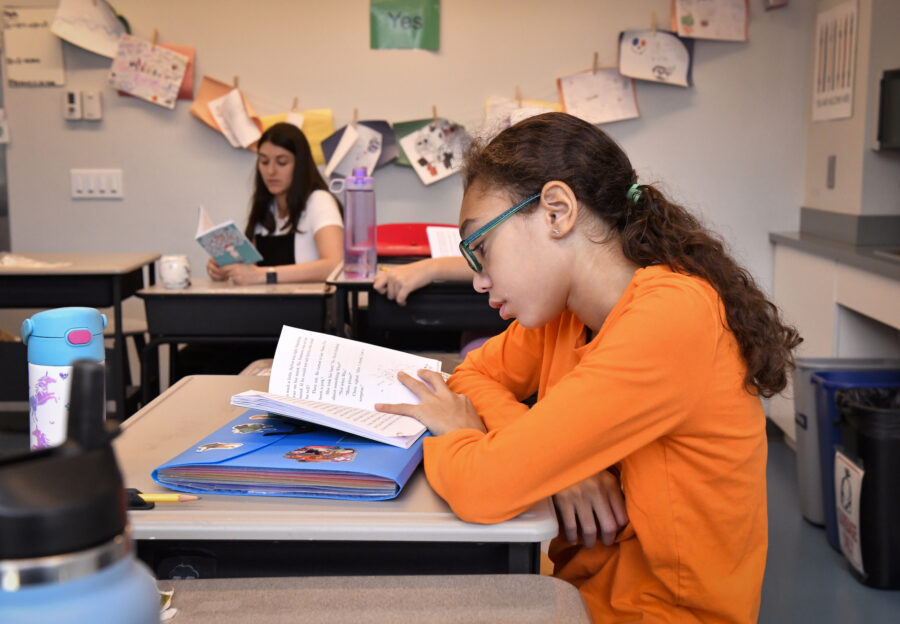Lower School
Lower School Academics
Celebrating and supporting our students through their learning journey
Our lower school curriculum contains a robust academic program designed to challenge and support our students through their learning journey.
Writing
Students learn skills to express themselves effectively through our writing curriculum. We address written composition, expression, grammar, mechanics, handwriting, and typing. The Hochman Method (a structured, sequential program that links writing to the process of language) is at the core of our writing curriculum and is used for writing activities in all subject areas. Writing is taught multiple times a week, and students further strengthen their writing skills and stamina with regular journal writing periods. When necessary, Language Therapists push-in to the classroom to support students.
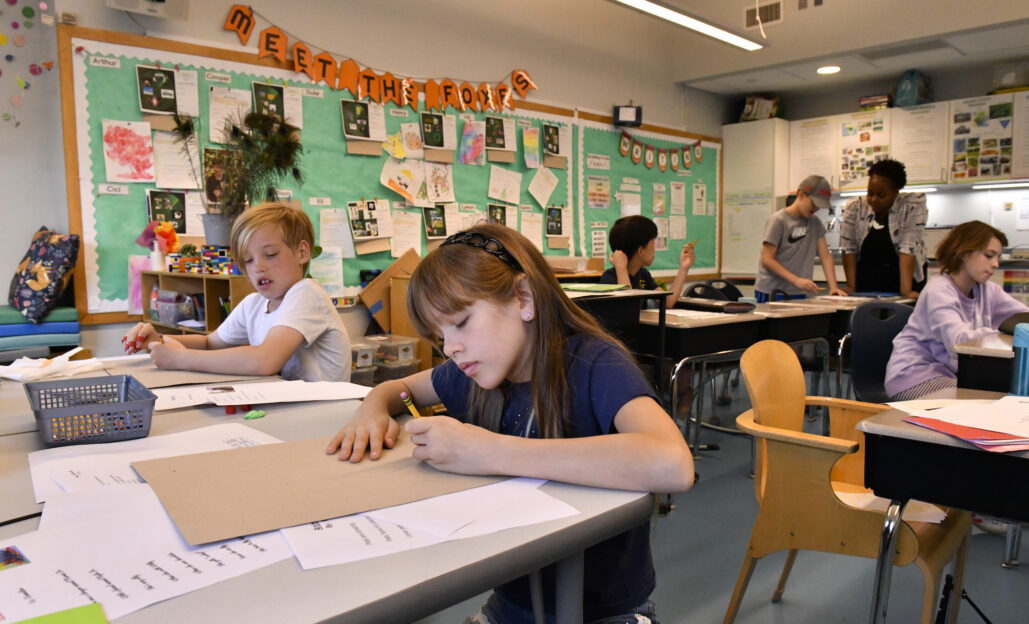
As they progress through the lower school, students explore descriptive and persuasive writing, and they learn to compare and contrast different works. Long term assignments include book reports and research papers. As students prepare for middle school, they become more adept at expressing complex ideas and develop into more independent writers.
Handwriting is taught using the multisensory Orton-Gillingham Preventing Academic Failure (PAF) program and Size Matters Handwriting Program. Guided by auditory, visual, and kinesthetic cues from their teachers, students learn to retain the correct formation and spacing of letters. Students use workbooks to progress independently at their own pace, closely monitored by their teachers. All but the youngest students are introduced to keyboarding. Cursive is introduced as students are ready.
Reading Group
Reading Group is a cornerstone part of our curriculum. Students meet five days a week and read together, studying selections that tie into broader themes being discussed throughout the year and across subject areas.
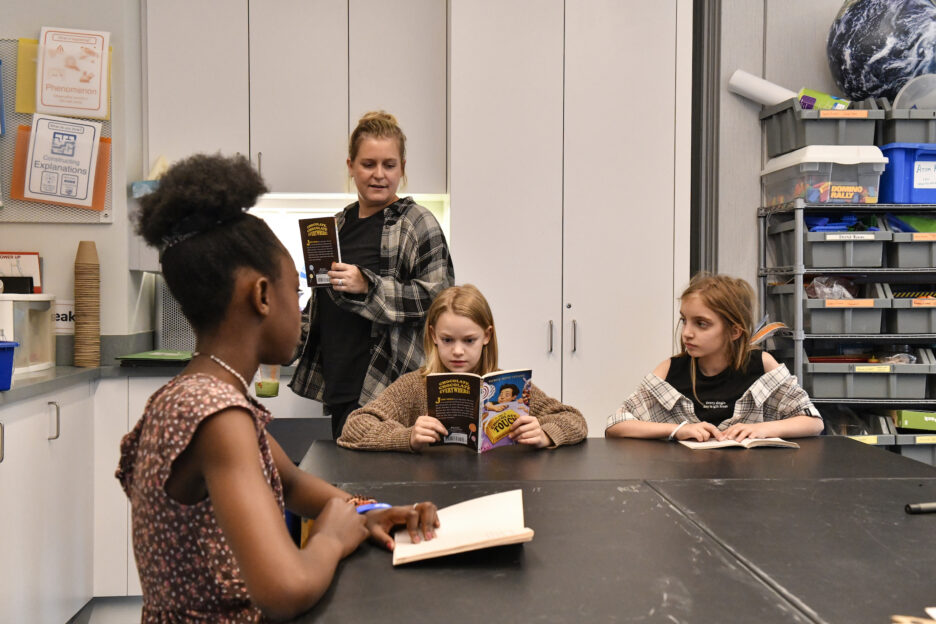
All lower school teachers are trained in the Orton-Gillingham PAF program and other modalities and they use multiple resources. Reading focuses on decoding, encoding, and comprehension. Language therapy is integrated into the reading program.
Students are grouped according to instructional level and learning needs; in addition they are always grouped with students similar in age. Groups are small with a very high teacher-to-student ratio.
Math
Our math curriculum draws on several mathematics programs to meet the learning needs of every student. Our lower school teachers use Math in Focus with Singapore Math and and Stern Mathematics, supplemented with other materials, games, and resources. Online resources include Sumdog, IXL, and ABCYa.
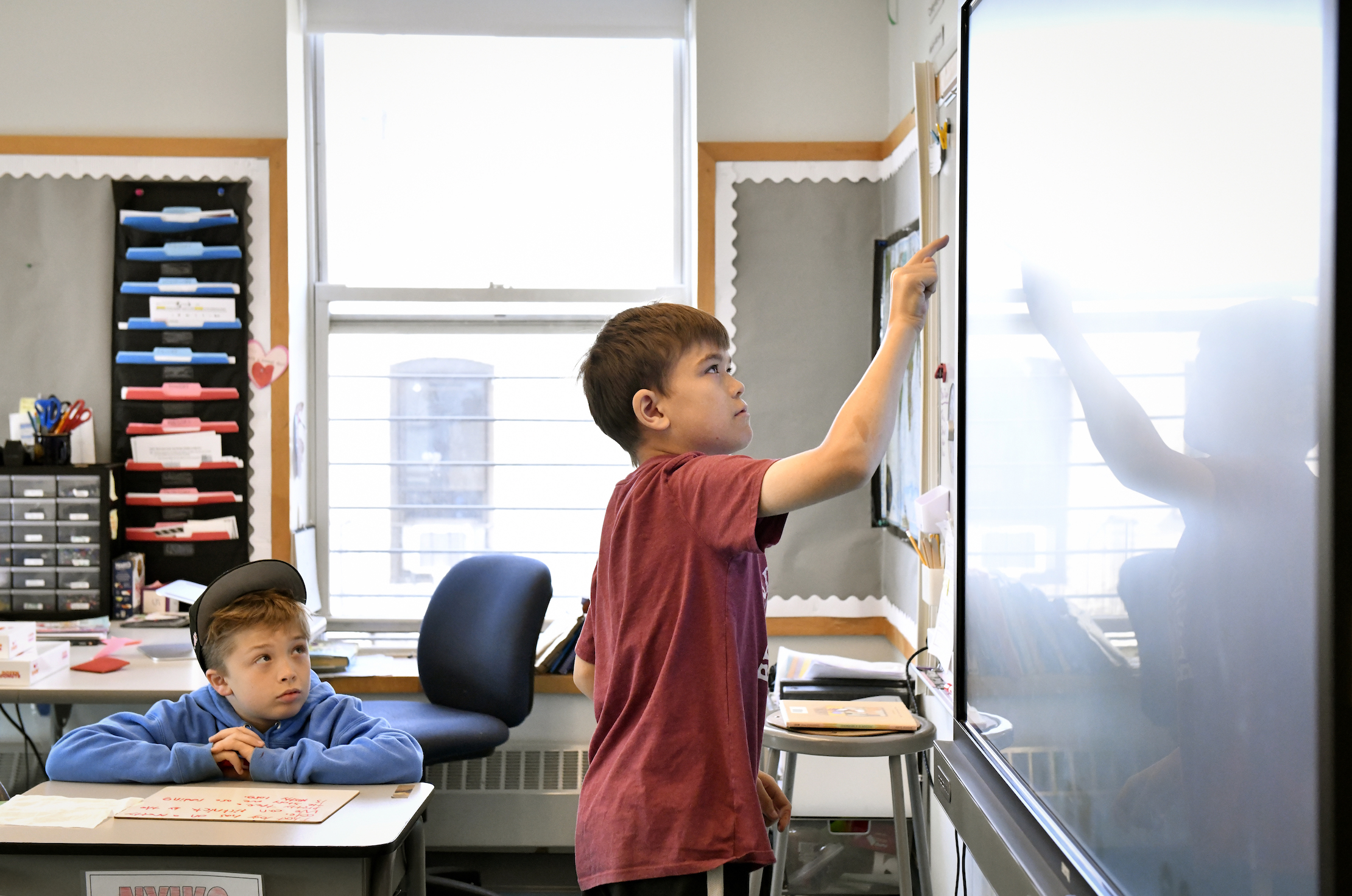
We teach students to develop computational skills and to become problem solvers. Students with similar abilities and learning styles are taught in small cross-graded groups. Previously learned skills and concepts are continuously reinforced even as new skills are introduced. Teachers use a variety of hands-on materials and manipulatives as necessary for students.
Technology is also an important tool in helping our students acquire and retain math skills. For example, some students solve math problems using interactive projectors or screens, which gives them the experience of tactile computation by allowing them to manipulate numbers using virtual manipulatives. This is particularly effective for students who struggle with graphomotor and fine-motor skills.
Science
Our science program focuses on the study of the natural world through an exploration of physical, earth, and life sciences.
We encourage students’ awareness of and interest in the world around them, while strengthening their investigative abilities. Students learn about the place of humans within the larger ecosystem and how their behavior impacts other animals, plants, and habitats.
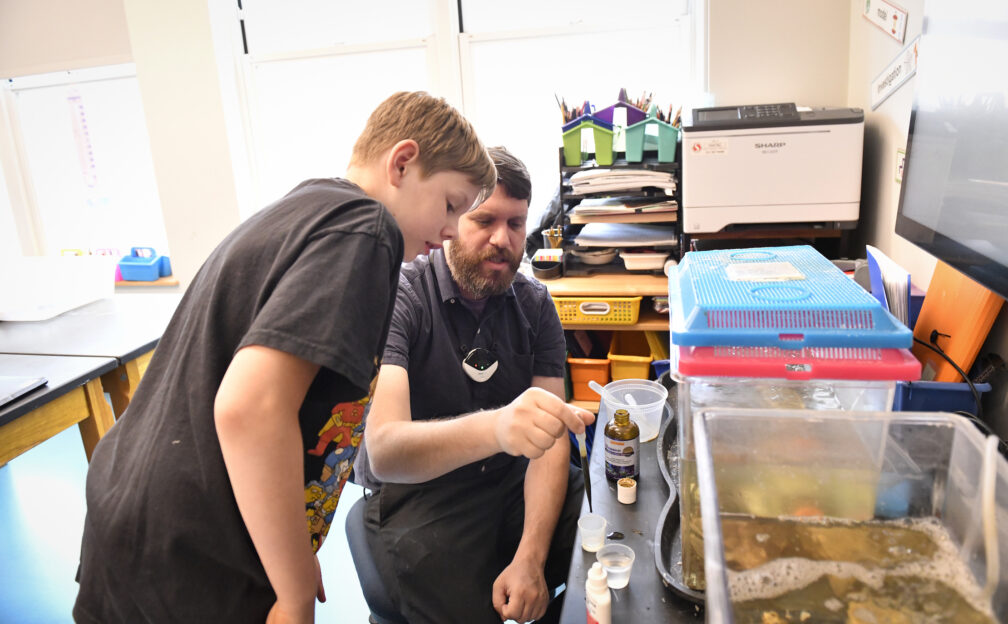
All classes visit the science room twice a week, with the exception of the youngest classes, who study science in their classrooms once a week. Lessons are inquiry-based, and with two teachers in the science room, students are able to conduct many fun, hands-on experiments. Content includes rocks and minerals, the human body, water and its conservation, mammals (through a study of a bat species native to New York), force and motion, and an electromagnetism unit during which students build electric circuits.
Our young scientists eagerly take their burgeoning skills in the scientific method on field trips to local parks, zoos, farms, the Marine Basin salt marsh, and the Franklin Mineral Museum, among other locations.
Social Studies
In our dynamic and contextually rich social studies curriculum, we encourage students to ask questions, gather and interpret information, and be thoughtful in their analysis. Social studies at MMFS focuses on themes such as: cultures near and far, interactions with different cultures, impacts of globalization, forced migration, activism, and how and why communities develop.
Our approach is one of in-depth study rather than a broad sweep of information. Our youngest students begin social studies by learning about each other, their families, and the school’s neighborhood. Curricula expand and broaden in step with students’ expanding awareness of their world. Some social studies units include: New York and the Development of New Amsterdam, West Africa, Activism in NYC, Indigenous Peoples, Families, Parks, and Immigration. New areas of study are introduced regularly. Research skills are developed at all age levels.
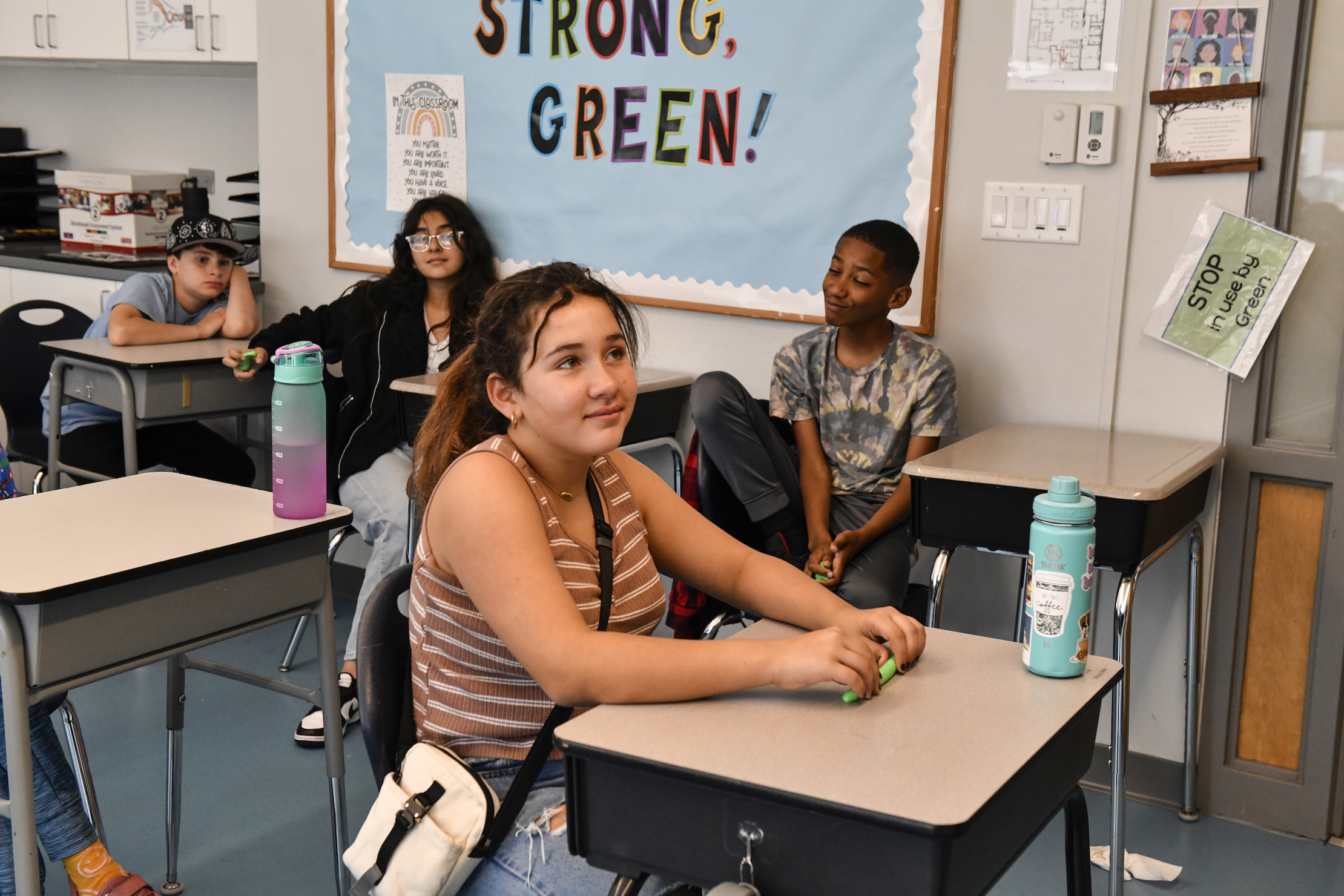
Healthy Choices
Healthy Choices is an academic class for our oldest lower school students. It is a series of four different classes: Library and Research, Human Sexuality, Media Literacy and Online Safety, and Health and Nutrition.
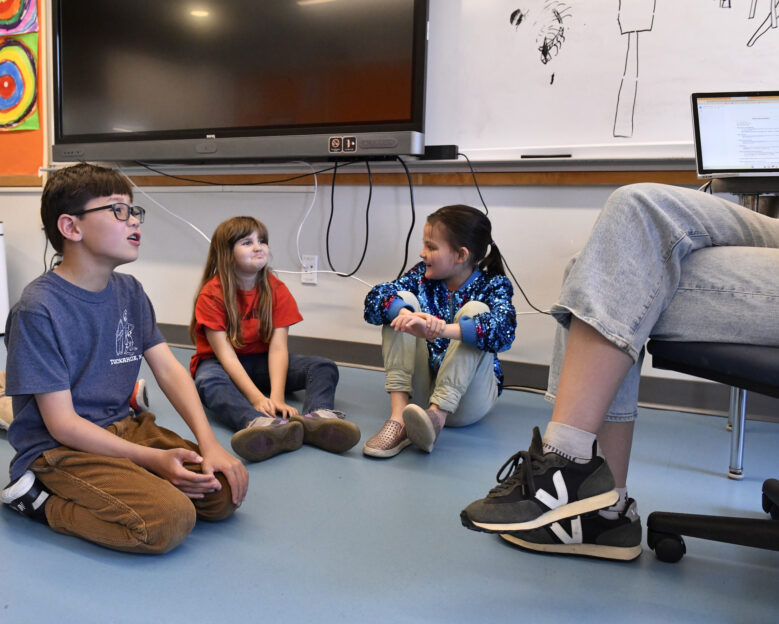
The challenges that all students face — physical changes, social challenges, growing independence, and peer pressure — are heightened for students with learning disabilities. Healthy Choices teaches students the skills necessary to make thoughtful choices.
Current Events
Lower school classes explore current events topics during the school year. Current events are fluid throughout the entire year and new topics are taught each week.
We believe it is important to introduce students, even at a young age, to the complexities of historic and current events. In the older classes, students are responsible for raising current events topics.
